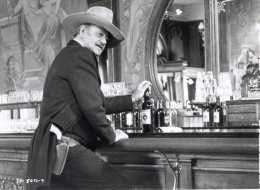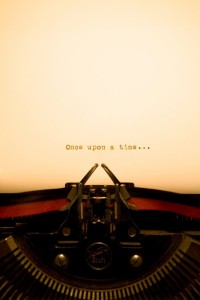By John Gilstrap
Yesterday, an otherwise unknown writer named Phillip R. Greaves II became way more famous than he deserved after publishing an ebook no one would ever have read but for spasms of media apoplexy. The work in question is The Pedophile’s Guide to Love and Pleasure: A Child Lover’s Code of Conduct.
Disgusting concept, eh? In case you’re on the fence, read the author’s summary of the book, as reported by The Los Angeles Times (the grammar and spelling are all Mr. Greaves’s): “This is my attempt to make pedophile situations safer for those juveniles that find themselves involved in them, by establishing certian rules for these adults to follow. I hope to achieve this by appealing to the better nature of pedosexuals, with hope that their doing so will result in less hatred and perhaps liter sentences should they ever be caught.”
Oh, my goodness. Where to start? Let’s first agree for the sake of argument that “pedosexual” is a word. Next we need to accept that child rapists aren’t all bad. I confess that I haven’t read this code of conduct, but sight unseen, it’s tough to imagine a set of social rules that would make child rape somehow less worthy of hatred or more worthy of “liter” sentences. If I’m elected king, these monsters will spend long months dangling from the anatomical tools through which they perpetrated their crimes and fulfilled their fantasies.
I think I read that Greaves’s book first appeared on Amazon.com on October 28, and instantly climbed the list to #1.3 bazillion in paid Kindle sales. Then someone noticed it and tweeted discontent. The presence of a pedophile manual went viral faster than Bieber and the fat kid with the light saber combined. Soon pressure was building for Amazon.com to take the book down. Amazon refused initially, but as the Mad Morality Police Force built momentum to boycott all Amazon.com products if the book remained, the company caved and pulled it down. We have lost forever our opportunity to learn Mr. Greaves’s child rapist code of conduct.
Unless, of course, he decides to put it up on a website of his own. If he does that, I wonder if the MMPF will demand a boycott of computers and cyberspace.
The world is no doubt a better place without a pedophile’s guide in circulation, but man oh man, I am not comfortable with this kind of de facto censorship. Book burning is scarier than any idea I can imagine, even if the burned books are printed in electrons instead of ink. It’s not as if someone was proposing to mentor wannabe kid-touchers.
If this is the precedent, where do we stop? In these days of self-publishing, cyberspace teems with poorly-written, ill-conceived screeds on all kinds of topics. Is The Anarchist’s Cookbook next on the list? How about Tom Clancy’s early books where he gives excellent instruction on how to build a nuclear warhead? (A side note to terrorists: Please follow all of the instructions in The Anarchist’s Cookbook to the letter. The only people you blow up will be those who are gathered in your terror lab. And maybe your next door neighbor if your house is small.)
A pivotal moment in Prince of Tides involves the rape of a child. When do we boycott Pat Conroy? What about Alice Sebold? The Lovely Bones is all about a child’s murder, for God’s sake. That’s even worse than pedophilia. Golly, when I really put my mind to it, I can draw up a huge list of story lines that might offend.
Make no mistake, there’s no Constitutional issue here. The First Amendment does not guarantee a right to have one’s words stocked in a bookstore, and to my knowledge, no one’s threatening to prosecute Mr. Greaves for writing his book. (I wouldn’t be surprised if someone took a peek at his research materials, however.) What bothers me is the tyranny of the outraged majority dictating what’s available for purchase.
Help me out here, Killzoners. Are there thoughts that are so distasteful and upsetting that they should be banned?





